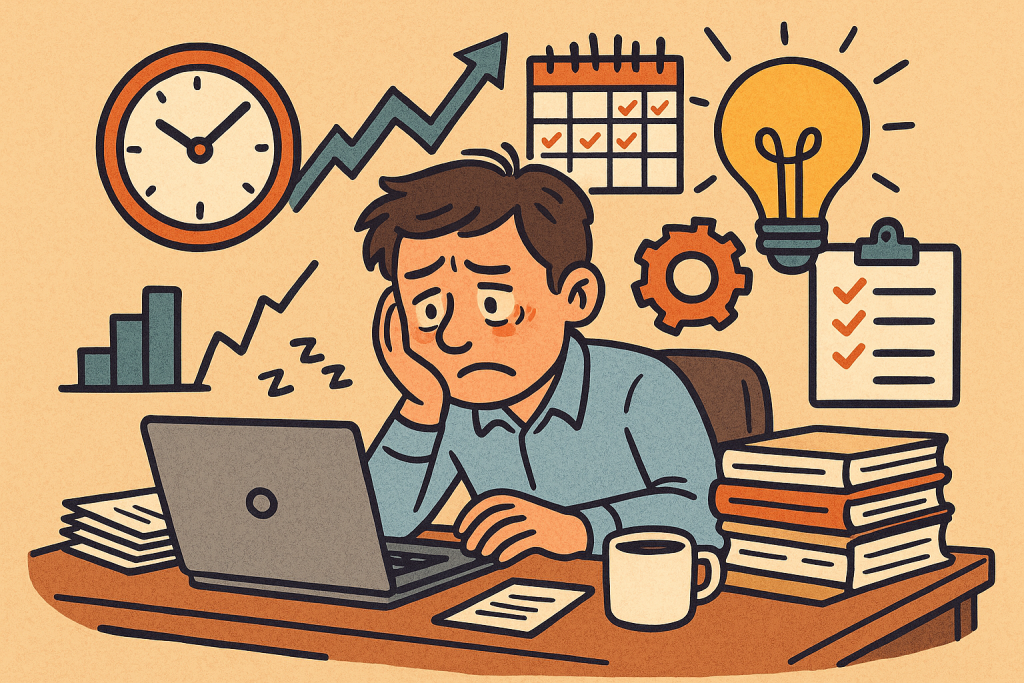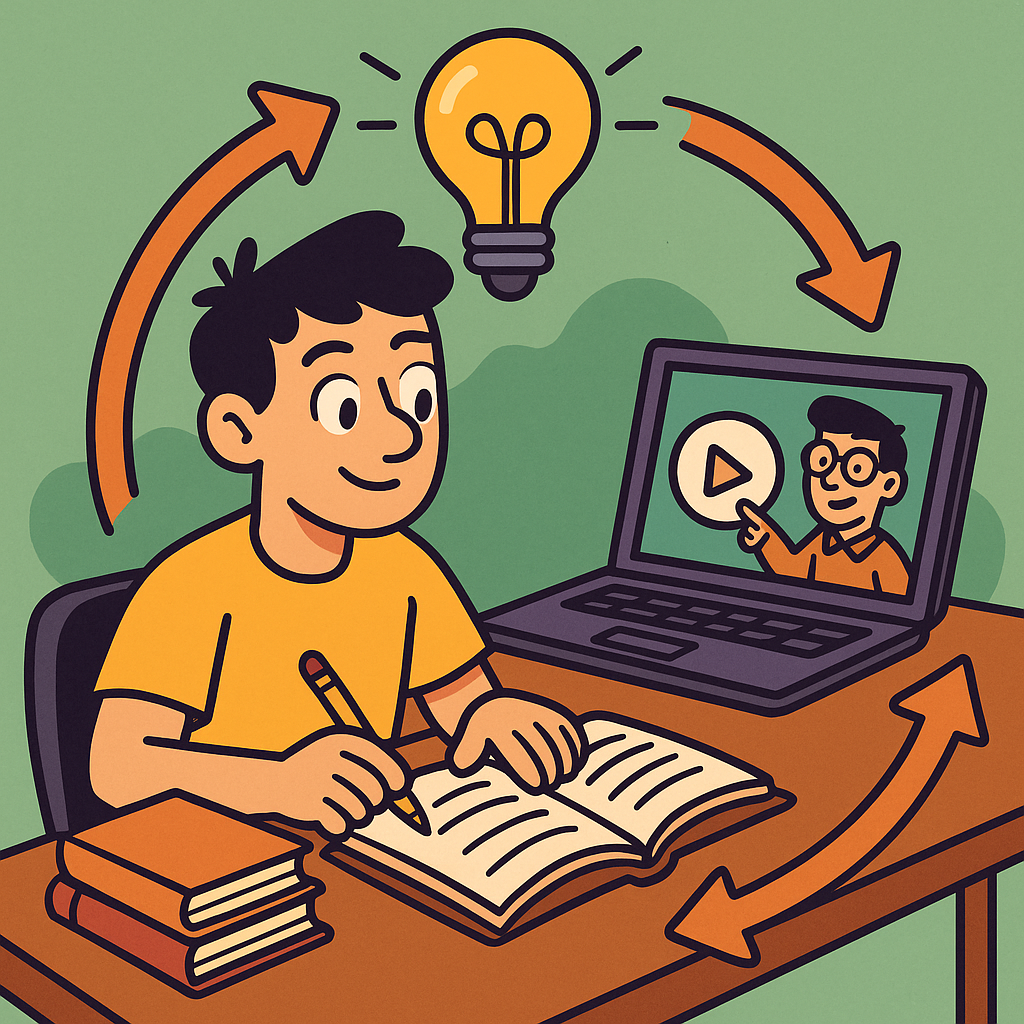Every aspect of work demands “efficiency.” Yet people struggle with burnout, blurred boundaries, and constant busyness. Here’s why rethinking productivity matters now—and how you can lead a more sustainable working life.

1. The Hidden Cost of Efficiency Overdrive
Recent data from Microsoft shows a 16% increase in meetings after 8 p.m., with the average employee receiving 117 emails daily—signs of the “infinite workday” that erodes downtime. Meanwhile, the OECD indicates that despite automation, genuinely free time is dropping—Brits now have just 23 hours a week.
This relentless drive to optimize leads to:
- Burnout and mental fatigue
- Task masking—appearing busy without meaningful output
- Erosion of boundaries between work and life
Clearly, productivity isn’t always about output—it’s about quality, balance, and impact.
2. From Hustle to Harmony: Emerging Alternatives
Slow Productivity: Quality Trumps Quantity
Inspired by Cal Newport’s slow productivity and rooted in the slow movement, this mindset emphasizes meaningful work over frantic pace. Principles include:
- Do fewer things
- Work at a natural pace
- Obsess over quality
Studies show slow productivity eases stress, reduces burnout, and frames work as sustainable growth—not a race.
Results‑Only Work Environments (ROWE)
ROWE shifts focus to outcomes instead of time spent. Employees control when, where, and how they work, as long as goals are met. This empowers autonomy and supports work-life balance.
Four‑Day Workweek: Efficiency Through Less
Trials worldwide—from Iceland to Japan—demonstrate that a four-day week can maintain or boost output while improving wellbeing. Examples:
- Microsoft Japan saw a 40% increase in per-employee productivity during a four-day test
- UK companies adopting it report lower stress and sustained performance
“Rethinking productivity” isn’t abstract—it’s measurable.
3. Factors That Support Rethinking Productivity
Boundaries and Digital Disconnection
To break efficiency addiction, individuals must set realistic boundaries:
- Turn off notifications after hours
- Schedule “focus time”
- Embrace “quiet quitting”—working to defined goals, not perpetual hustle
Building a Supportive Environment
Research emphasizes psychological detachment and social support as key to productivity and work-life balance. Flexibility, feedback, and autonomy create space for real progress.
Organizational Shifts in Mindset
Leaders must resist overvaluing activity over results. Terms like “busyness” and “workism”—where identity is wrapped in overworking—need to be challenged. Culture should reward meaningful results, not just long hours.
4. The Business Case for Rethinking Productivity
Adopting sustainable productivity methods offers real rewards:
- Greater employee retention and engagement
- Declines in sick days, especially among Gen Z
- Better performance and client satisfaction
Organizations that redefine productivity thrive in retention, output, and workplace culture.
5. Practical Steps to Begin Today
Want to rethink productivity? Here’s a toolkit to start now:
- Audit your time – Track your day to find deep work vs. busywork.
- Add one buffer day – Try a trial four-day week or “no meeting Friday.”
- Set communications boundaries – Use tools to delay emails and silence notifications.
- Focus on outcomes – Use OKRs or KPIs to shift from hours to results.
- Encourage reflection – Host monthly reviews to question if “busy equals productive.”
- Warm up with slow wins – Challenge one project weekly to be done at a slower, more purposeful pace.
6. Anticipating Resistance
“We can’t afford docked hours.”
Evidence shows output may stay level or increase with fewer hours (e.g., four-day models). Stress savings, lower turnover, and health gains often offset perceived costs.
“Not every team can go slow.”
Flexibility is key. Creativity, customer service, and deep work roles benefit most—but all teams can adjust workflows to focus on impact over ceaseless activity.
“People will slack off.”
If you reward only hours logged, yes. But track outcomes, not attendance. Proper feedback loops and clear goals maintain accountability.
Conclusion: A Call to Action
The culture of constant efficiency is unsustainable—and costly. It harms mental health, dwarfs leisure time, and fosters hollow definitions of success. But as trials and strategies show, it’s possible to work less, live better, and still achieve more.
Now is the time for leaders, teams, and individuals to rethink productivity, reset expectations, and rebuild work around meaning, not metrics. Make the shift—and watch impact and wellbeing rise together.
References
Odell, J. (2023). Jenny Odell believes we’re obsessed with efficiency, and it’s not OK. ABC News. Retrieved from https://www.abc.net.au/news/2023-06-05/jenny-odell-says-hyper-efficiency-is-leading-us-astray/102398120
Petersen, A. H. (2021). The Frustration with Productivity Culture. The New Yorker. Retrieved from [New Yorker article] arxiv.orgabc.net.aunewyorker.com
Financial Times. (2025). AI alone cannot solve the productivity puzzle. Financial Times. Retrieved from [FT article] ft.com






